When the nation’s highest award for military valor is draped around the neck of noteworthy recipients these days, tales of bravery on beachheads on European or Pacific island shores, sacrifice in the jungles of Vietnam or heroic acts in the sands of Iraq and Afghanistan retell those tales.
But, the nation’s first awards were passed down for daring scenes in the midst of the nation’s greatest turmoil: the Civil War.
And those first actions played out where Tennessee and Georgia meet.
That’s one reason why the Charles H. Coolidge National Medal of Honor Heritage Center opened its doors near the banks of the Tennessee River in Chattanooga, Tennessee, in February.
RELATED
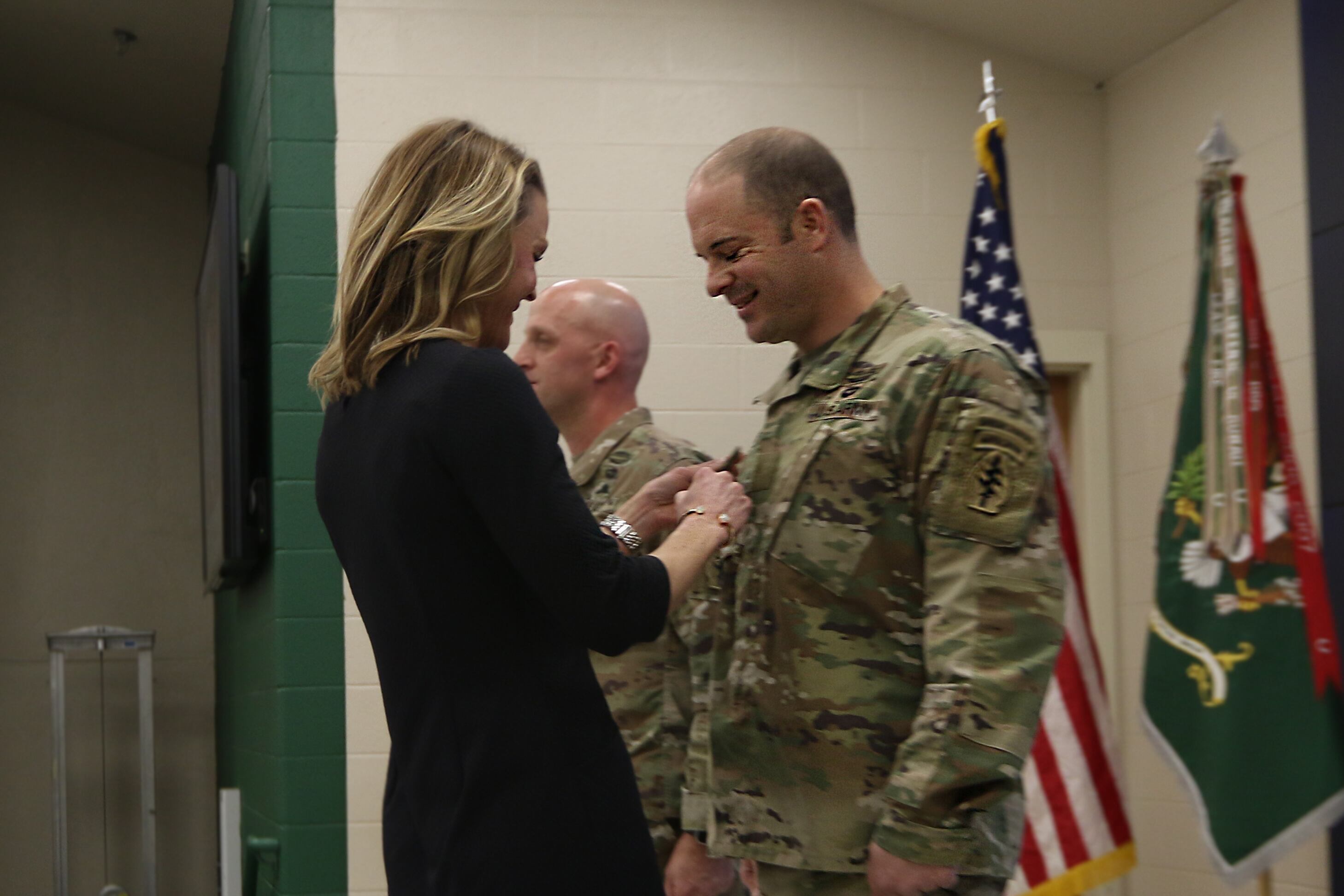
During the grand opening ceremony, Army Gen. Paul Funk, head of training and doctrine command, noted the historic connection.
“Just like everybody else up here, I got chills today,” Funk said. He speculated that if there were a way to reach back in time and interview those medal recipients from the Civil War days to today, there would likely be a common theme.
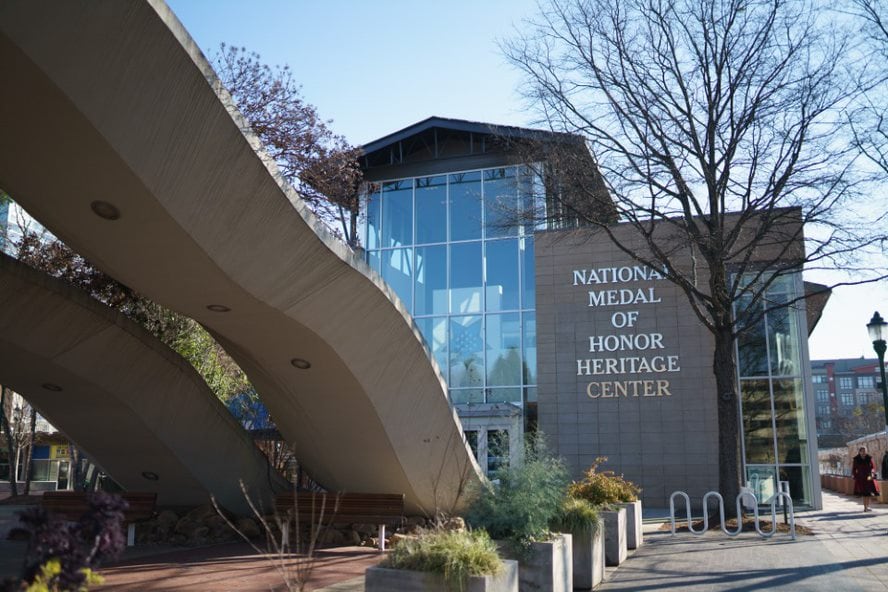
“Their heroic acts were born not for themselves but for those who they served with,” Funk said.
The center started as the project of local veterans and military historians in the 1980s, first opening with a small collection of donated military items in 1987 in a wing of a downtown auditorium. By 1991 the facility had acquired a larger home in the downtown area.
There were also plans to put the museum at a site along Interstate 75 at the Georgia-Tennessee state line, hoping to attract travelers passing through the busy Atlanta to Nashville corridor.
But fundraising efforts stalled and as recently as a few years ago the collection occupied a humble space in a 1,000-square-foot space in a low-traffic strip mall outside of the heavily tourist downtown.
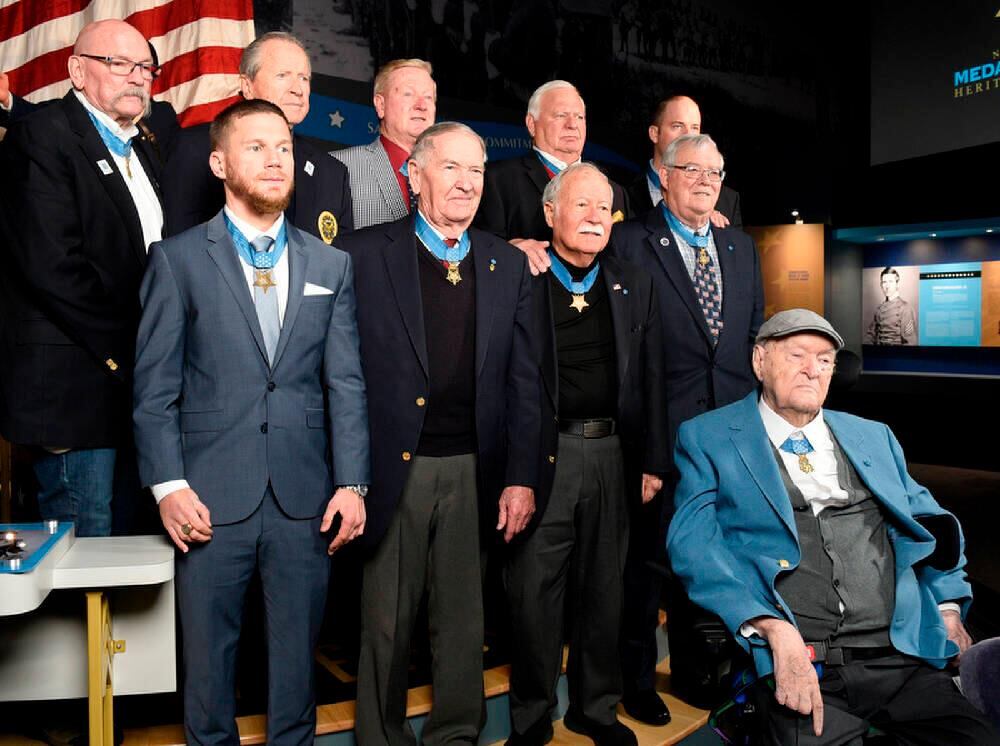
Much of the donated collection at the time was gathering dust and mold before being revitalized by then-director Jim Wade, and Navy veteran and museum supporter Patty Parks.
In 2014, staff estimated the group had amassed 100,000 pieces, including 700 uniforms.
During those fallow days, some outside groups in Knoxville, Tennessee, and Columbus, Georgia, sought to have the museum relocate to their areas.
But, organizers saw the Chattanooga area as the birthplace of the medal and the right place for such a center.
Over the past few years, a combined effort of fundraising, work by local military veterans and money form state and local government support finally brought what would now be called a heritage center to reality.
And in likely one of the prime locations for the city — adjacent to the Tennessee Aquarium, a major tourist draw in the downtown that also hosts a minor league baseball stadium and a variety of family-oriented activities and other centers.
The center’s executive director, Keith Hardison, told Military Times that they drew inspiration from the Infantry Museum and Soldier Center at Fort Benning, Georgia, for some of their displays.
They’ve created what he calls a somewhat immersive experience, with battle scenes from Medal of Honor events.
They have gear carried in combat by Tennessee recipients and actual medals displayed, on loan from families. In some displays, a visitor will walk into a World War I trench, reconstructed much like what Army Sgt. Alvin York might have seen.
RELATED
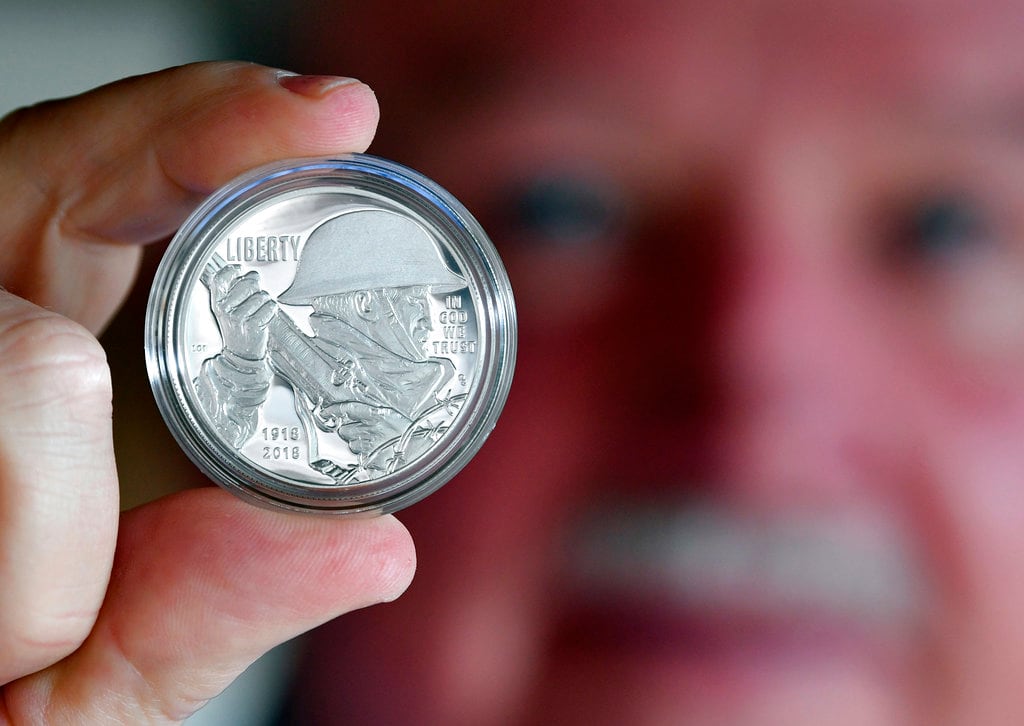
Another setting puts the person at the foot of a scaled-down replica of the 400-foot Hacksaw Ridge that Army Pfc. Desmond Doss scaled during the Battle of Okinawa in World War II.
While in its early incarnations the facility called itself a ‘museum,’ its organizers shifted to ‘heritage center’ for their focus. That’s because they run lessons on core values associated with the acts of valor the medal recognizes.
“I like to say history is what happened, heritage is what you do with it,” Hardison said.
They prioritize the character traits of the medal recipients, some of which are on display in video interviews and other interactive items.
“Our goal, our point is courage is courage and you can show it not only on the battlefield but on a playground or in a board room,” Hardison said. “You don’t have to wear a uniform or carry a gun to have these characteristics.”
The center is named for Coolidge, a local man who was awarded the Medal of Honor for heroism during World War II in France.
It was on Oct. 24, 1944, when Tech. Sgt. Coolidge, heading up machine gunners and riflemen with M Company, 3rd Battalion, 141st Infantry Regiment, 36th Infantry Division to occupy a hilltop near the German border that the Tennessee native’s bravery shined.
Over four days of German attacks on the hilltop, in the rain and cold, Coolidge and his soldiers held off the advance of an infantry company and two tanks.
During one attack, Coolidge took a bazooka and moved within 25 yards of a tank. The weapon failed to fire so he threw it aside and grabbed all the grenades he could carry, according to the citation.
Coolidge grew up in the shadow of the medal’s history. The first medals were awarded in 1863 for actions by Andrews’ Raiders in “The Great Locomotive Chase” on April 12, 1862.
That chase happened when two dozen Union Army volunteers, led by civilian scout James Andrews, took over a Confederate train outside a small Georgia town and rode it north toward Chattanooga. At the time the area was controlled by confederates, 200 miles behind the lines from the advancing Union Army.
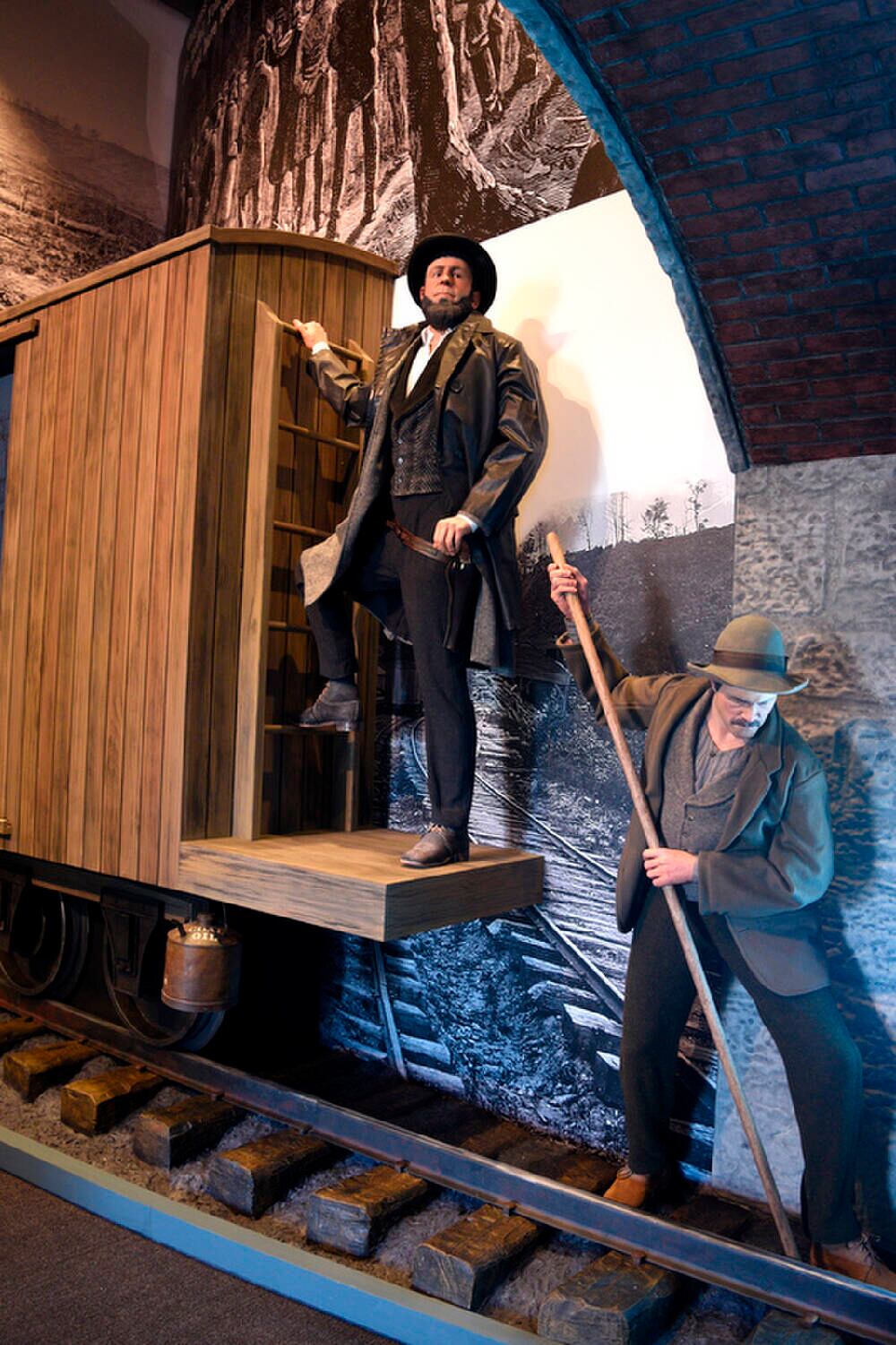
The crew did as much damage to the rail lines as they went and then scattered into the woods.
The men were captured by the confederates, tried and later hanged for being unlawful combatants and spies, according to the heritage center.
At first six of the raiders and ultimately a total of 19 of the 24 men would be the first awarded the Medal of Honor for their actions that day.
Later that year another 33 Medals of Honor would be awarded for area battles at Chickamauga and Missionary Ridge, critical junctions in the Union Army’s march into the South to break the Confederate Army’s support.
But the center isn’t the only place that seeks to display and recognize the Medal of Honor and those who received it.
Another group, the National Medal of Honor Museum Foundation, for years sought build a National Medal of Honor Museum in Mount Pleasant, South Carolina, aboard the USS Yorktown. But they shifted their focus westward when officials from Arlington, Texas, won them over with their pitch to bring the museum to the Lone Star State.
That museum is expected to open in 2024, according to a statement last year by the foundation.
Todd South has written about crime, courts, government and the military for multiple publications since 2004 and was named a 2014 Pulitzer finalist for a co-written project on witness intimidation. Todd is a Marine veteran of the Iraq War.




